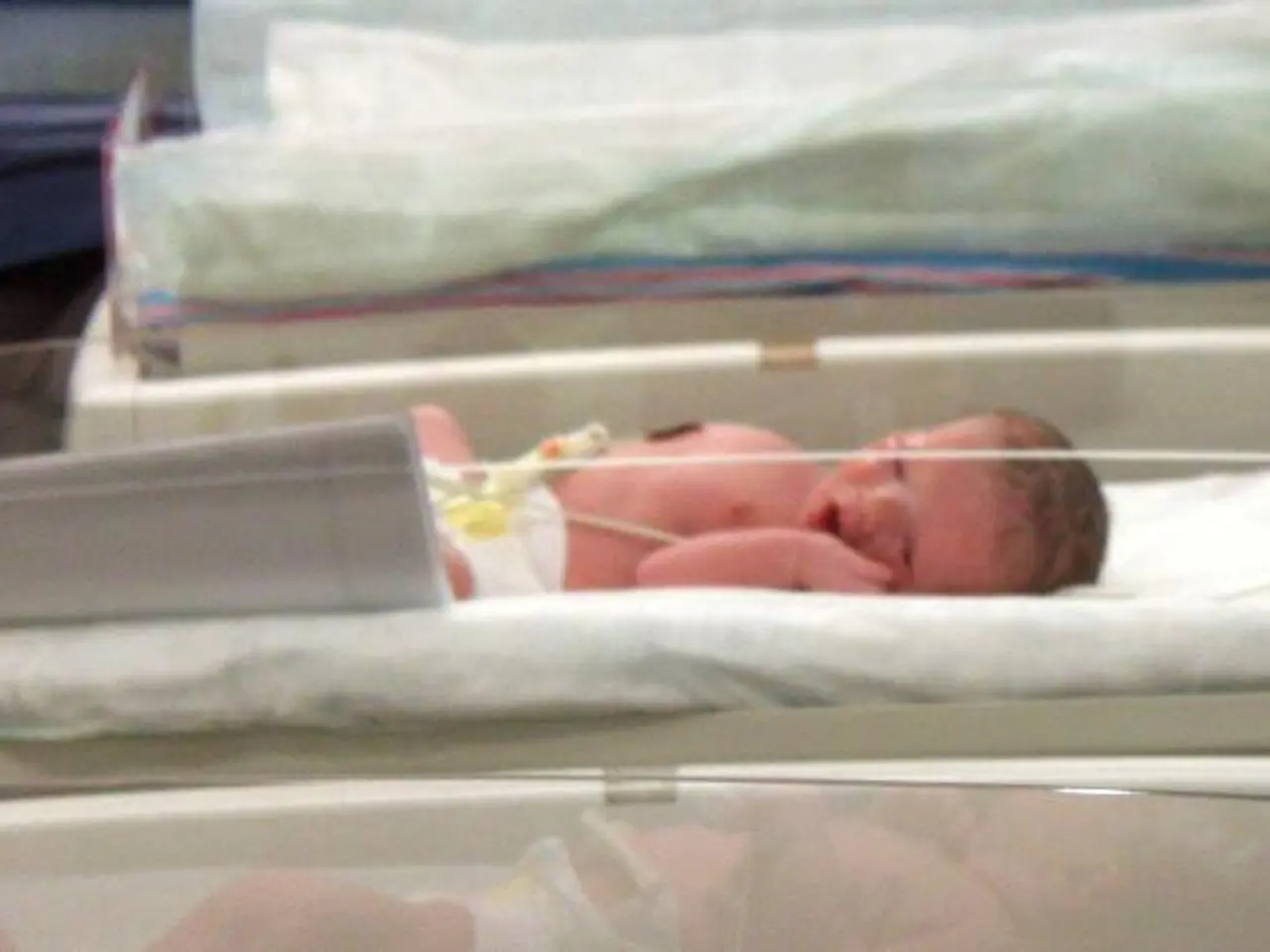Important Vaccinations for Newborn Babies in Nigeria
In Nigeria, a comprehensive immunization program is in place to protect newborns from vaccine-preventable diseases. This initiative, aimed at safeguarding the health and well-being of infants, targets life-threatening conditions such as polio, measles, tuberculosis, and Hepatitis B.
The program begins with essential vaccinations at birth, including the BCG vaccine to prevent tuberculosis and the Oral Polio Vaccine (OPV). The schedule continues with vaccines like pentavalent (diphtheria, pertussis, tetanus, hepatitis B, and Haemophilus influenzae type b), pneumococcal, rotavirus, yellow fever, and measles in the first year of life. In recent years, the program has evolved to include the malaria vaccine [1][5].
However, the program faces significant challenges. Low immunization coverage, with only about 23% of children fully immunized, remains a concern. This persisting issue results in over 2300 childhood deaths daily from vaccine-preventable diseases [4][2]. Vaccine acceptance and uptake difficulties, including missed opportunities and accessibility issues, further complicate the situation. Outbreaks of vaccine-preventable diseases, such as cholera, strain the healthcare system [4][2].
To address these challenges, several strategies are being implemented. The incorporation of the malaria vaccine is a significant step towards reducing child mortality due to malaria. Community outreach teams are being engaged to deliver vaccines door-to-door in underserved areas. There is a proposal to expand the role of community pharmacists in vaccine administration to improve coverage [1][4].
Global health organizations, including the World Health Organization (WHO), UNICEF, and Gavi, are offering support for Nigeria’s immunization programs. National efforts aim to achieve malaria mortality reduction and increase full immunization rates by 2025 [1][4].
In Nigeria, where healthcare resources may be limited, vaccinations are even more important to save lives and reduce illness. One of the most critical vaccinations in the Nigerian context is the polio vaccine, as Nigeria was once a polio-endemic country. Thanks to nationwide vaccination campaigns, Nigeria has made tremendous progress in eradicating polio [6].
Education and outreach play a crucial role in addressing concerns about vaccinations. For instance, the Haemophilus influenzae type b (Hib) vaccine is essential for newborns to protect them against this potentially fatal infection, given the prevalence of Hib in Nigeria. Similarly, the PCV is recommended to prevent pneumonia, meningitis, and other pneumococcal diseases in Nigerian newborns [3].
Strengthening cold chain systems and addressing cold chain and storage issues are also key to ensuring the effectiveness of vaccines. By ensuring that newborns receive essential vaccinations, we can significantly reduce infant mortality rates in Nigeria [4].
In conclusion, Nigeria’s immunization program for newborns follows the WHO recommended vaccines tailored to local disease burden with recent integration of the RTS,S malaria vaccine. Ongoing strategies seek to address coverage and acceptance challenges through expanded delivery channels and community engagement. With continued efforts and support, Nigeria can further improve its immunization program and protect more infants from vaccine-preventable diseases.
References: [1] National Primary Health Care Development Agency (NPHCDA). (2021). Nigeria Immunization Schedule. Retrieved from https://nphcdanigeria.org/immunization-schedule/
[2] World Health Organization (WHO). (2020). Vaccine hesitancy. Retrieved from https://www.who.int/news-room/fact-sheets/detail/vaccine-hesitancy
[3] Centers for Disease Control and Prevention (CDC). (2021). Haemophilus influenzae type b (Hib) vaccines. Retrieved from https://www.cdc.gov/vaccines/vpd/hib/public/index.html
[4] World Health Organization (WHO). (2021). Vaccine-preventable diseases in Nigeria. Retrieved from https://www.who.int/news-room/fact-sheets/detail/vaccine-preventable-diseases-in-nigeria
[5] World Health Organization (WHO). (2021). RTS,S/AS01 malaria vaccine. Retrieved from https://www.who.int/vaccine_research/diseases/malaria/rts-sas01_malaria_vaccine.html
[6] Polio Eradication Initiative. (2021). Nigeria. Retrieved from https://polioeradication.org/countries/nigeria/
Read also:
- Federal Environmental Protection Agency under scrutiny for alleged manipulation of soil sample results following East Palestine catastrophe
- Exploring water vaping: Is this a secure substitute for conventional e-juice in vaping devices?
- Breathing Methods for Bronchitis: Classifications and Their Functions
- Antibiotic Z-pack for strep throat: Dosage details, potential consequences, and duration of treatment






